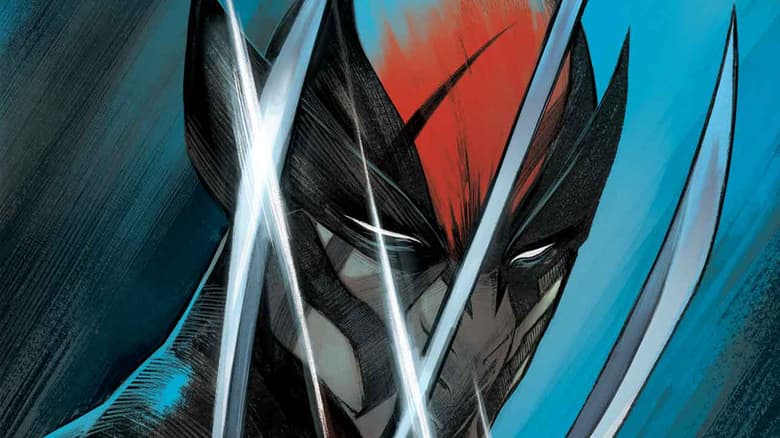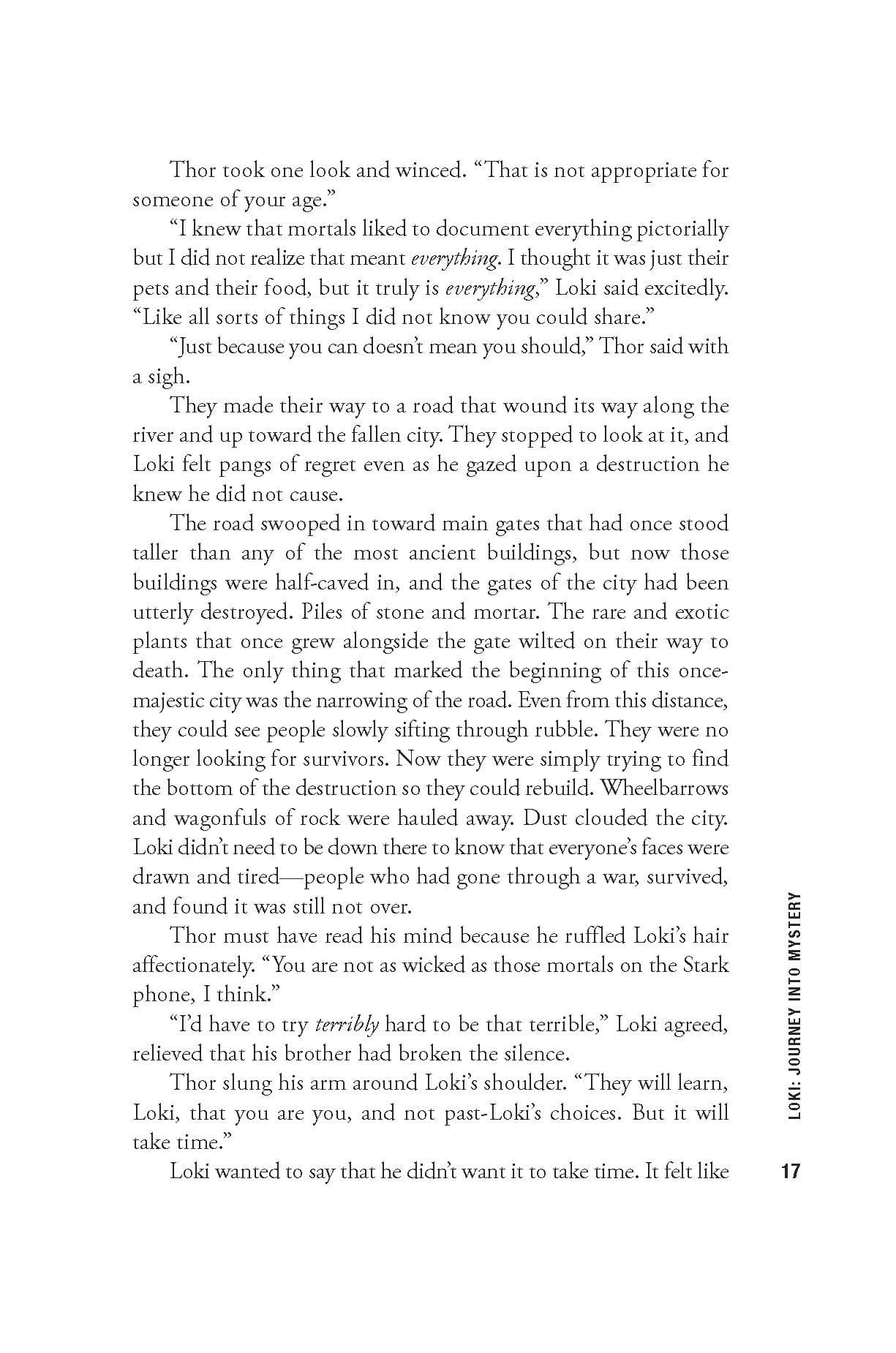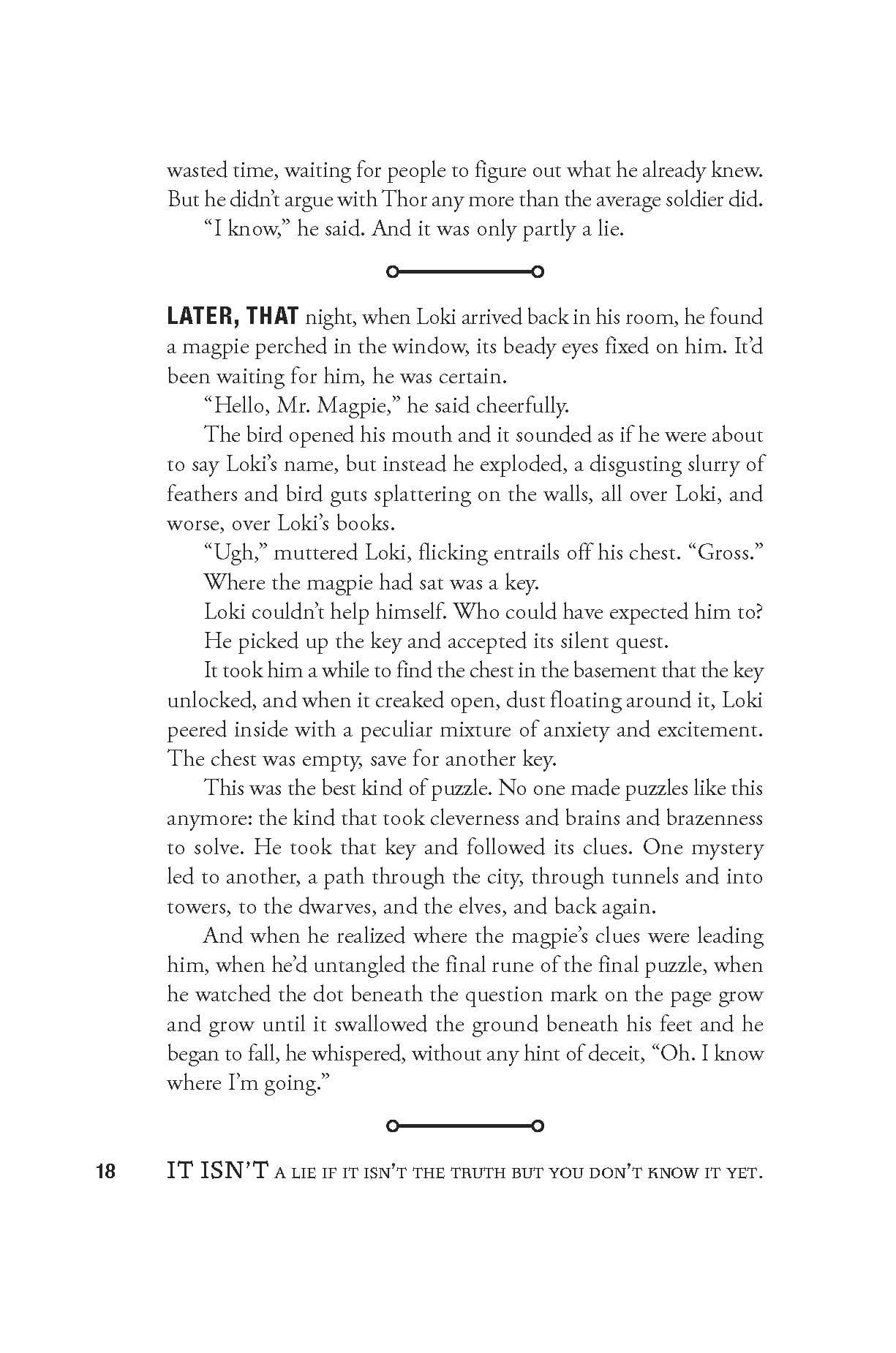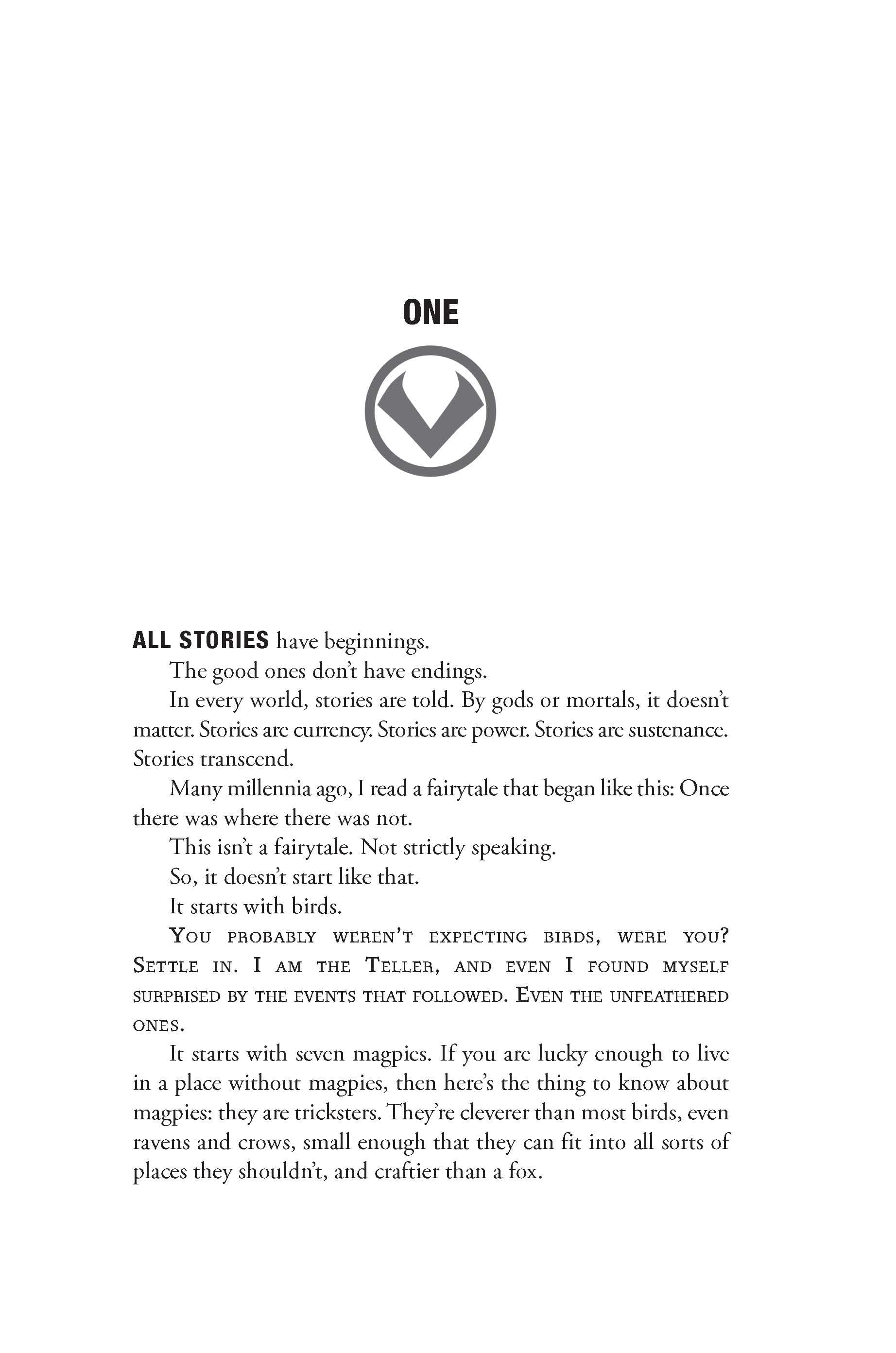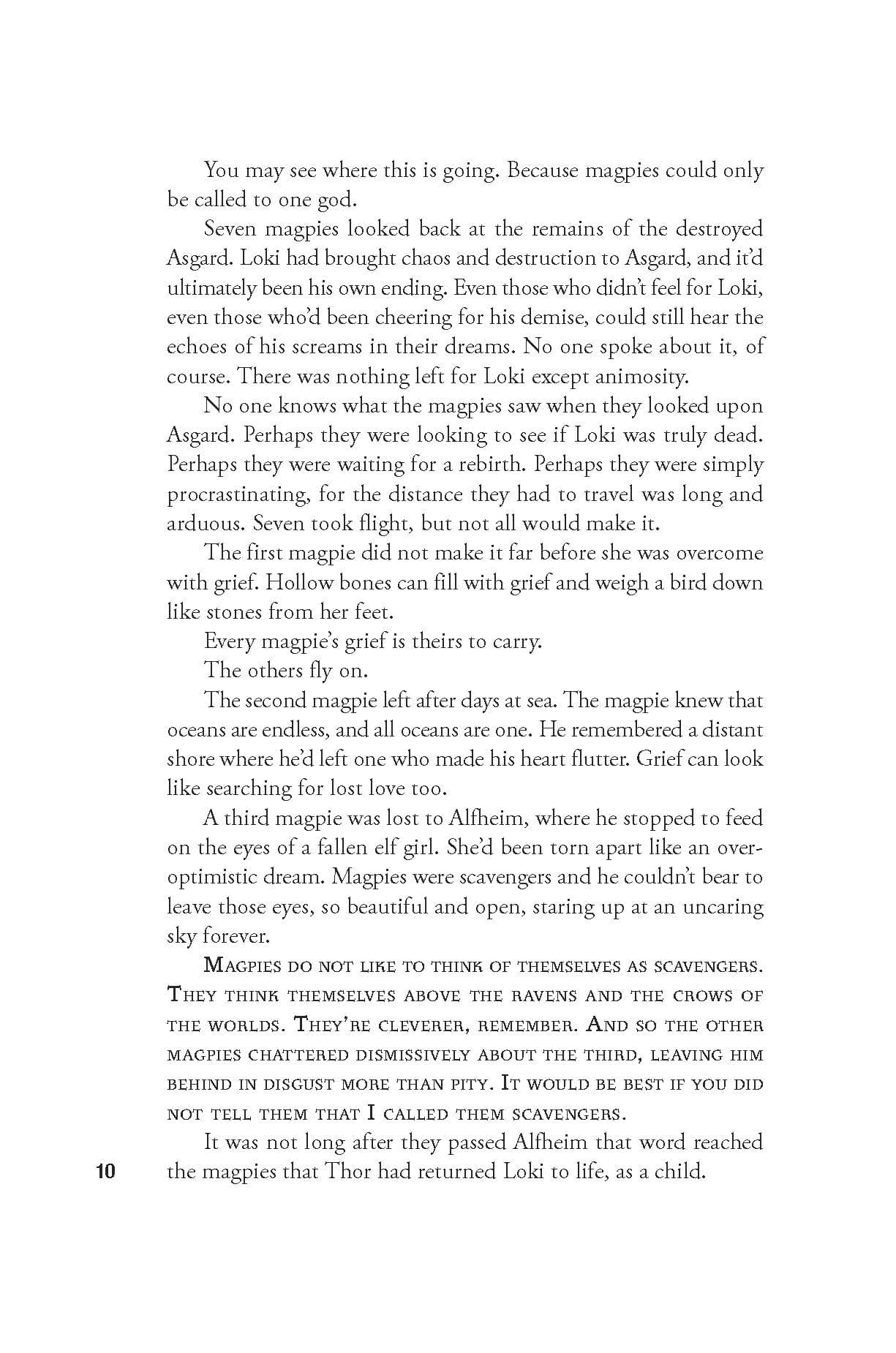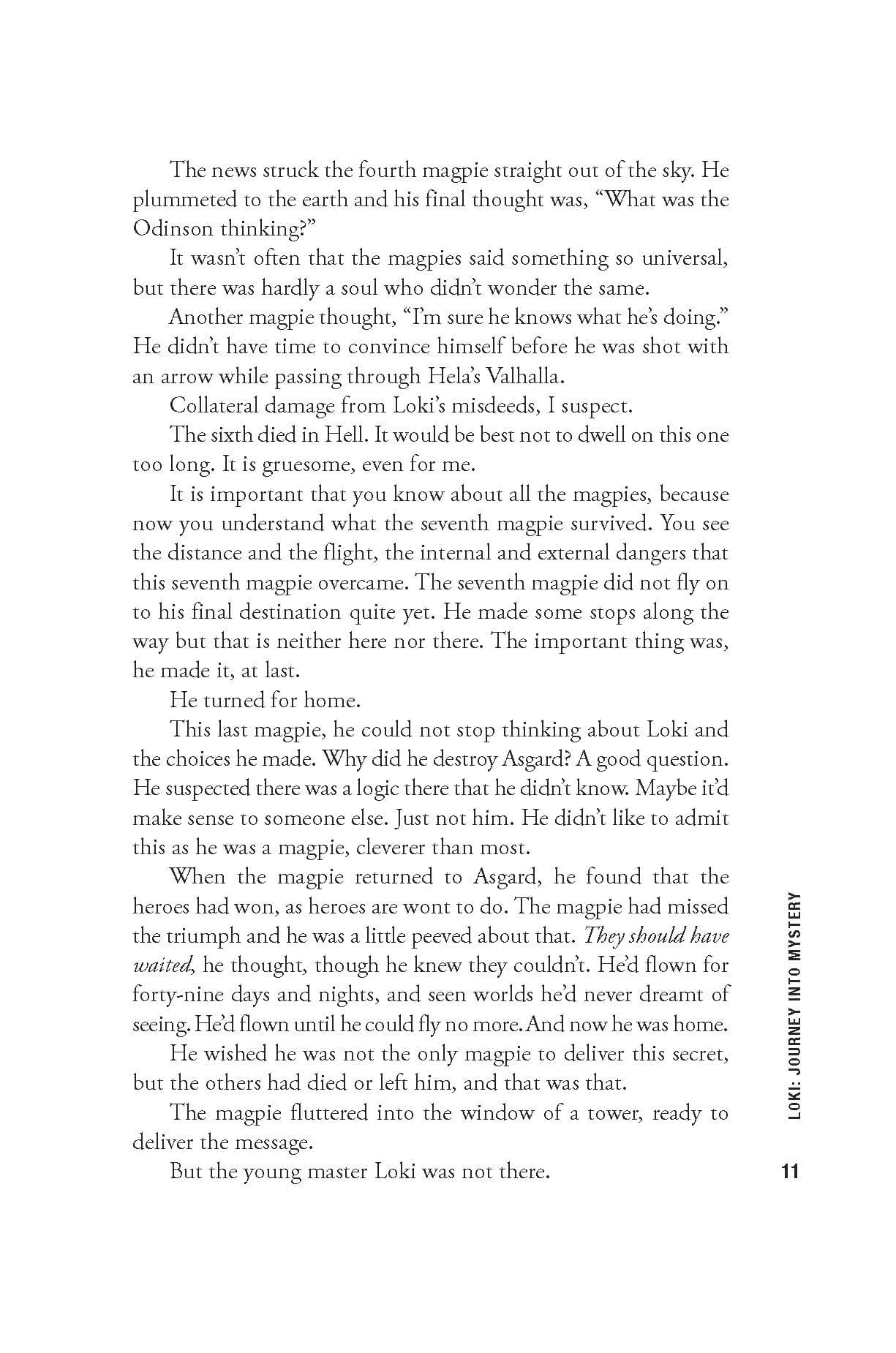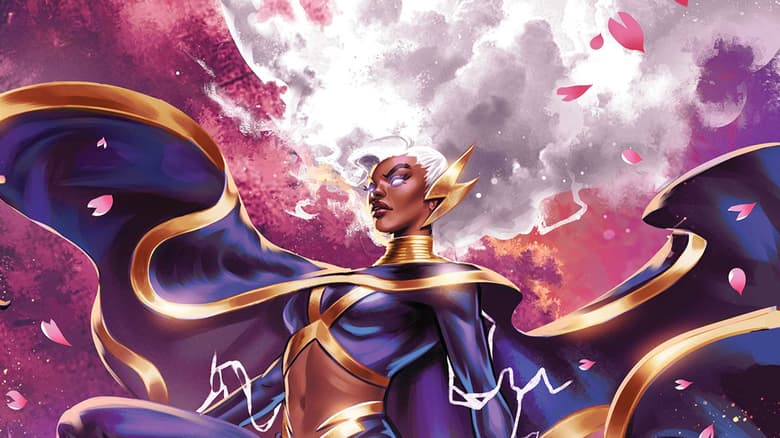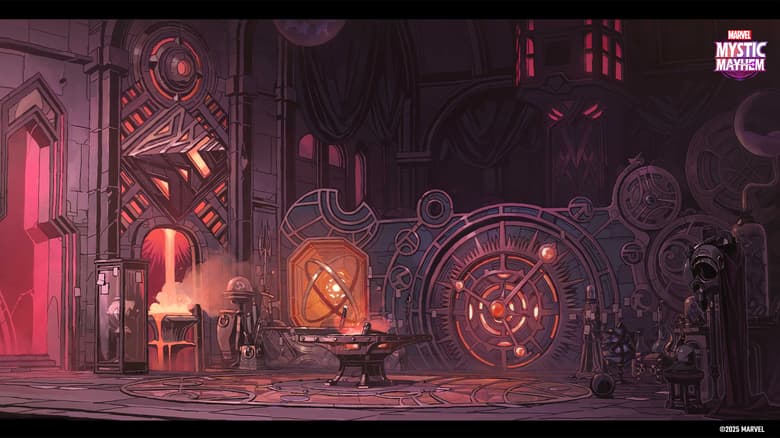First Look and Exclusive Excerpt from ‘Loki: Journey Into Mystery’
We spoke to author Katherine Locke about the epic prose novel adaptation of comic book series ‘Journey Into Mystery,’ out in bookstores December 19.
PREORDER LOKI: JOURNEY INTO MYSTERY FROM TITAN BOOKS!
Coming soon from Titan Books: The God of Lies has been reborn. Now, Young Loki must cross the realms to reclaim his own story, outwit ancient enemies, struggle to do the right thing, and avoid falling in love.
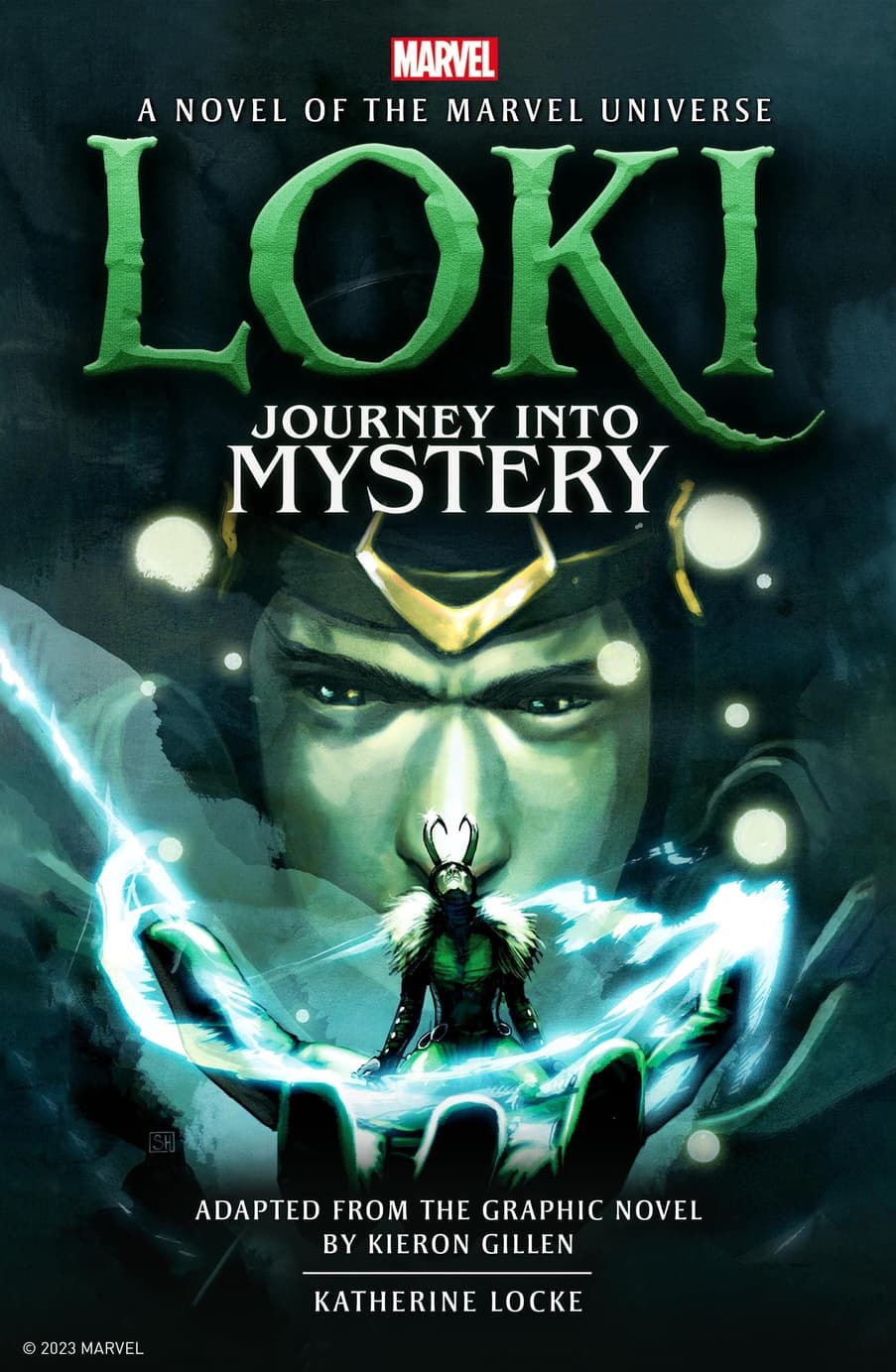
Adapting writer Kieron Gillen’s Loki comic book series, prose novel Loki: Journey Into Mystery is an epic quest spanning the Ten Realms. At its center is a reborn trickster who now struggles to walk the hero’s path.
When Earth is plagued by an epidemic of fear, ancient prophecy says that only Thor can stop the monstrous threat of the Serpent but without help from Loki, Thor is doomed to fail. Aided by a handmaiden from Hel and a demon puppy, Loki must risk everything to find redemption—or doom himself for eternity. Either way, a Nightmare lies in wait hoping to rule the world, and Loki will have to risk everything on his craziest scheme of all!
Meanwhile, new gods threaten to disrupt the status quo, throwing everything out of balance. Loki must act as a responsible ambassador, but will the Ten Realms end in Surtur’s fire?
Ahead of its December 19 release, we spoke to Loki: Journey Into Mystery author Katherine Locke about the trickster’s redemptive quest, plus what readers can expect from this full-length novel adaptation of the fan-favorite comic series.
MARVEL.COM: What was it like writing your first Marvel project and your first prose novel adaptation?
KATHERINE LOCKE: Writing Loki: Journey Into Mystery was such a treat. I’ve been a Marvel fan for so many years, and to get to write such an iconic character felt like a gift. I really liked getting to work with and write a Loki that prose novel readers might not know. I think this story has so many layers and so much depth to it that there are an infinite number of angles one could take. Adapting a graphic novel to a prose novel was a unique process too! Though I’m a very visual writer, it took a little bit for my brain to adapt to writing this way. I feel lucky that I had great source material to follow. Kieron [Gillen’s] writing, the arc, and the art through the whole JOURNEY INTO MYSYERY comic series was next level.
MARVEL.COM: What is it about this particular story that speaks to you?
KATHERINE LOCKE: Rereading the JOURNEY INTO MYSTERY run was an experience because when I was reading it for adaptation, I was reading it with different eyes. I was reading it with a writer’s eyes, looking at choices, and narrative decisions, pacing, things that would need to shift or flex a little bit because prose is just a different format than comics or graphic novels. But each time I returned to the comics, I was really struck by Loki in this story. It’s so, so character driven. He’s messy. I would write notes to my editor about my problem child, meaning Loki. But he’s loved despite being messy. And he makes good decisions, even if they’re messy. And he tries so, so hard. Even if it’s a mess. And he doesn’t always make all the right decisions, but I think he’s doing his best with the tools he has, his own nature, and the end goal that he sees (even if he’s not always sharing that goal with those around him). Is there anything more relatable than that? I think it’s also a way of looking at this character that might be fresh and exciting and thought-provoking for readers. He’s the God of Mischief and Lies, sure, but what’s behind those lies and that mischief? What makes Loki himself, time after time? That’s what kept me coming back to the page.
MARVEL.COM: What themes did you want to highlight in this story and what do you hope readers take away from it?
KATHERINE LOCKE: So many around Loki have imposed a narrative on him, a story about who he is and his motivations, and that is a heavy imposition, especially on a kid. Loki really struggles with getting out from beneath that narrative, and with shaping his own narrative—if he’s even in charge of his own story. I think that’s something that I wanted to emphasize and focus on. I think that is true for a lot of readers, regardless of age.
People often try to tell us stories about ourselves, and those can be hard to lose, and they can keep us from finding our own truth about ourselves. They tell us stories about being bad kids or good kids, which each come with their own burdens, or what it means to be neurodivergent, or what it means to be queer, or what it means to be "other," or what it means to be perfect, or what it means to be the eldest, or the youngest, or the first, or the last, or the athlete, or the artist, or any other label we’re assigned, regardless of whether we asked for it. It isn’t an easy path to sort out the truth from the fiction, to learn who we are, and to use who we are to shape our own stories, to decide our own destinies. Some of us work our whole lives to figure that out.
That’s ultimately what this book is about. Loki learning to be Loki, regardless of decisions made by past versions of himself, regardless of the stories told about him and to him about who he is. And it’s about those around Loki also learning to see this Loki for who he is, and to shed their own narratives about him, and to trust him, a little more than they might otherwise trust the God of Mischief. I hope we all get to find our own stories, and that those around us who love us also see us for who we are. And for readers still on that journey, I hope Loki can help illuminate that path, even if it’s through Hel and back.
The quest continues December 19! Read an exclusive excerpt from Loki: Journey Into Mystery in the gallery below, then preorder your copy of the prose novel from Titan Books now.
The Hype Box
Can’t-miss news and updates from across the Marvel Universe!

TV Shows
‘Your Friendly Neighborhood Spider-Man’ Swings into Action in New Trailer
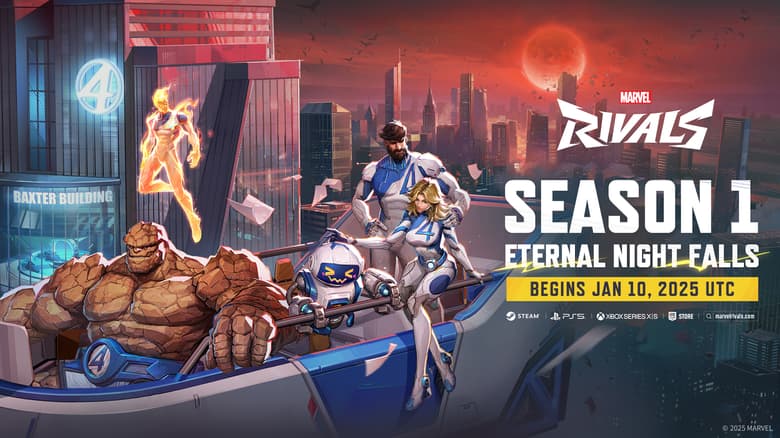
Games
'Marvel Rivals' Season 1 Introduces Fantastic Four to Ever-Expanding Roster of Heroes

Comics
Marvel Unlimited Annual Plus Membership Slashes Price for New Sale

